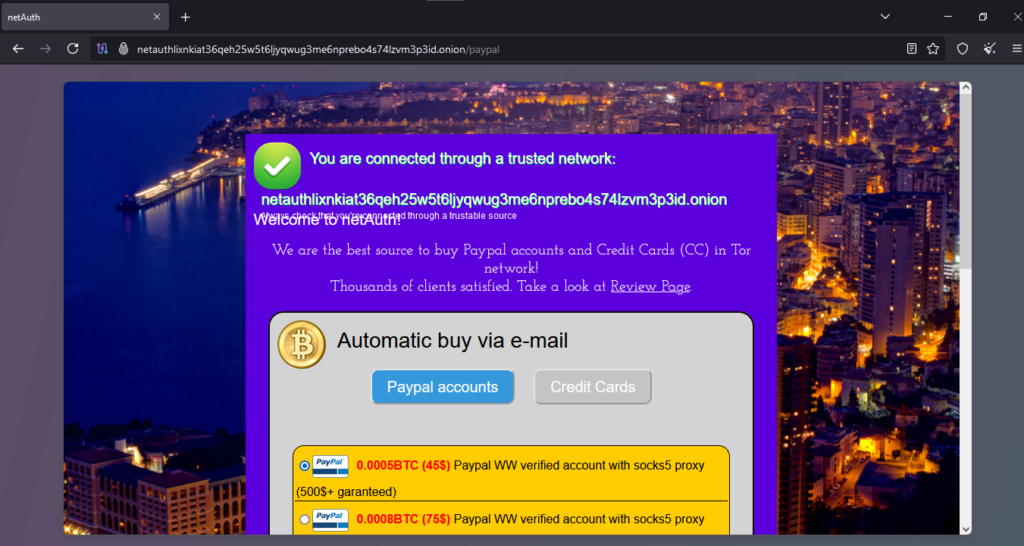Table of Contents
TogglenetAuth – TOR Scam Report (24)
Onion Link : http://netauthlixnkiat36qeh25w5t6ljyqwug3me6nprebo4s74lzvm3p3id.onion
Scam Report Date : 2024-11-21
Client Scam Report Breakdown
Original Scam Report :
The client reported a user’s experience with an alleged scam site discovered through The Hidden Wiki, a well-known dark web directory. The user claims to have placed an order on the site but received nothing in return, leading to accusations of fraud. The emotionally charged language and explicit wording reflect frustration and anger over financial loss and a sense of betrayal.
Defined Terminology and Key Issues
To better understand and evaluate the report, the following terms and phrases are defined:
- Order and Money Gone: The user indicates that they initiated a transaction involving payment but never received the product or service promised. This is a classic hallmark of online scams, particularly in unregulated environments like the dark web.
- Scam: A deceptive scheme designed to defraud individuals of their money or information. In this context, the scam involved accepting payment without fulfilling the agreed-upon order.
- The Hidden Wiki: A directory on the dark web that provides links to various websites, including marketplaces, forums, and other services. While some links lead to legitimate resources, many direct users to fraudulent or illegal sites.
- Don’t Trust This Motherfuckers: This phrase, while informal and explicit, reflects the user’s attempt to warn others against interacting with the site in question. It underscores the user’s belief that the site is operated by unscrupulous individuals who engage in deceptive practices.
The report highlights several key warning signs of scams prevalent on dark web platforms: promises of goods or services, payment demands upfront, and a complete lack of accountability or customer service when the promised product is not delivered.
Report Context and Implications
The user’s experience is representative of a broader issue within the dark web ecosystem: the high prevalence of fraudulent activity. Sites promoted through The Hidden Wiki or similar directories often appear legitimate, complete with professional interfaces and enticing offers. However, many of these sites exist solely to exploit unsuspecting users, particularly those seeking illegal goods or services who are unlikely to report scams to law enforcement.
This report serves as a cautionary tale about relying on unverified links, especially in environments where trust is minimal, and recourse is limited. The emotional tone and explicit warning reflect the user’s genuine frustration and emphasize the importance of skepticism when dealing with dark web marketplaces. Potential users must recognize that platforms listed on directories like The Hidden Wiki are not inherently trustworthy, as anyone can submit links, and the directory itself is neither curated nor regulated.
In conclusion, the client’s report reveals a common dark web scam pattern: enticing users with promises of goods, collecting payment, and disappearing without delivering. This analysis underscores the need for caution when navigating such platforms and serves as a reminder that anonymity does not equal safety. Users should avoid transactions in unregulated online spaces and report fraudulent activity to relevant authorities when possible. Enhanced awareness and education on these tactics can prevent others from falling victim to similar scams.






